
Lecture preview | Frontier Lecture on Development and Disease
Lecture time
June 27, 2025 8:50-12:00
Lecture location
Conference Room 302, Building 1, Jinfeng Laboratory
Lecture Topic 1: New Mechanisms for Nutritional Metabolites to Regulate Tumor Evolution
Introduction to the speaker
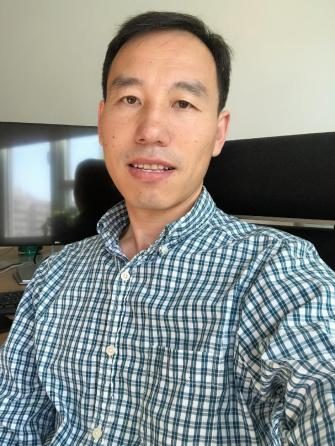
Bu Pengcheng is a second-level researcher at the Institute of Biophysics, Chinese Academy of Sciences and a doctoral supervisor. Chief scientist of the National Key R&D Program, a leading talent in the Ten Thousand Talent Program, a leading talent in the innovation of the Ministry of Science and Technology, a leading talent in the National Youth Thousand Talent Program, a Hundred Talent Program of the Chinese Academy of Sciences, and an outstanding youth team of the Chinese Academy of Sciences. He has successively engaged in postdoctoral research at UC Berkeley, Cornell University and Duke University. Mainly engaged in the study of stem cell and tumor metabolism. He has presided over the National Key R&D Plan, the Four Major Chronic Diseases Projects, the Committee of the Foundation, the Committee of the Foundation, and the Strategic Leading B Project of the Chinese Academy of Sciences. In recent years, he has published many research papers in journals such as Cell Metabolism (4 articles), Cell Stem Cell, Developmental Cell, Trends in Cell Biology, etc.
Lecture introduction
The intestine is an important organ for the digestion and absorption of nutrients and the main place for sensing nutrients. Nutrient metabolic disorders are an important cause of colorectal cancer. However, people's understanding of how nutritional metabolites regulate the occurrence and metastasis of colorectal cancer is far from enough, and the mechanism by which nutritional metabolites regulate the occurrence and development of colorectal cancer is not clear, and there is a lack of effective drug targets. This report will focus on the metabolic regulation of colorectal carcinoma occurrence and metastasis, explain the functions and mechanisms of dietary supplements creatine and fructose to promote colorectal cancer growth and metastasis, as well as the mechanism and intervention strategies for colorectal cancer retinoic acid tolerance in colorectal cancer.
Lecture topic 2: Research on the mechanism of neural stem cells and brain development diseases
Introduction to the speaker
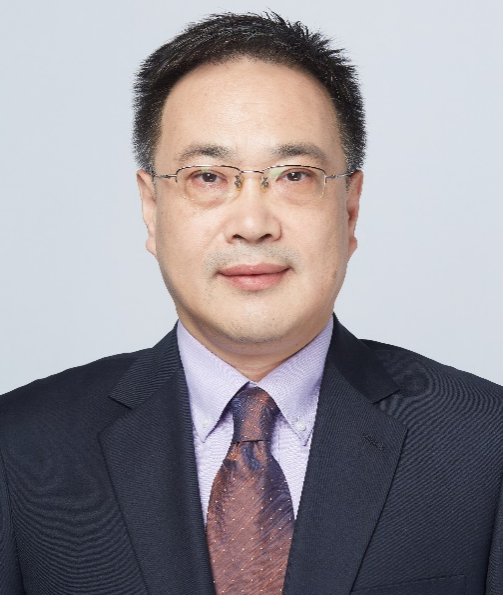
Jiao Jianwei, researcher at the Institute of Zoology, Chinese Academy of Sciences. Chairman of the Stem Cell Physiology Professional Committee of the Physiology Society. He won the national outstanding youth, led by tens of thousands of people in the country, and won the chief scientist of the National Key R&D Program (two times). Undertake the key special projects of the Ministry of Science and Technology, the pilot special projects of the Chinese Academy of Sciences, the outstanding youth of the Foundation Committee, key, major research plans, original exploration, innovative group projects, etc. Mainly engaged in the research on neural stem cells and brain development mechanisms, explore the mechanism of brain development diseases, provide potential targets for the diagnosis and treatment of brain diseases, and lay a theoretical foundation for transformation research. The research results have been published in more than 80 articles in international journals Cell, Cell Stem Cell, Dev Cell, PNAS, Adv Sci, Sci Adv, Cell Res, Mol Psychiatry, Trends Cell Biol, etc. Currently, he is a director of the Physiological Society, a director of the Neurology Society, etc., and is an editorial board member of the magazine Fundamental Research, Cell Proliferation and other magazines. He won the Huaxia Medical Science Award, Stem Cell Innovation Science Award, Maternal and Child Health Science and Technology Award, etc.
Lecture introduction
The mammalian brain contains millions of neurons and glial cells. Normal cerebral brain development plays an important role in controlling behavior, learning and cognition. During neurogenesis, neural progenitor cells (NPCs) proliferate and differentiate into neurons of cortical layers, which are precisely controlled by various intracellular and extracellular signaling pathways. NPCs of the brain are mainly PAX6-positive apical progenitor cells and TBR2-positive basal progenitor cells. Although more and more molecules are reported involved in the proliferation of progenitor cells, how neurogenesis is regulated by epigenetic factors during the embryonic development of the cerebral cortex remains largely to be investigated. Here, we found a series of epigenetic molecules and modifications are essential for the proliferation and self-renewal of neural stem cells.
Lecture topic 3: Construction and application of organoid model
Introduction to the speaker
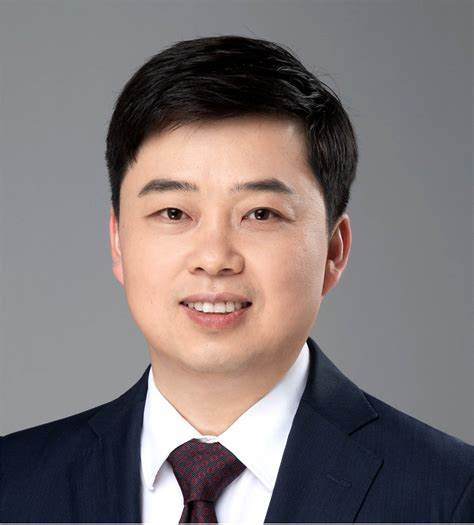
Gao Dong is a researcher at the Center for Excellence in Molecular Cell Science, Chinese Academy of Sciences (formerly the Shanghai Institute of Biochemistry and Cell, Chinese Academy of Sciences). He graduated from Peking University in 2011; from 2011 to 2016, he received postdoctoral training at Johns Hopkins University and Memorial Sloan Kettering Cancer Institute; in August 2016, he joined the Shanghai Institute of Biochemistry and Cell, Chinese Academy of Sciences. Dr. Gao Dong focuses on the construction of tissue organoid culture system and analyzes the molecular mechanism of the fate of adult stem cells and tumor cells; he uses communication/common correspondence authors to publish more than 20 research papers in journals such as Nature (2024, 2025), Nature Genetics (2020, 2024), Cancer Cell, and Cell Research (2022, 2025), and has been invited to write reviews and commentary articles related to organoid research in journals such as Cell; he has received support from the "Shangsi Exploration Scholars" project, the National Outstanding Youth Science Foundation, the National High-level Talent Youth Project, and Shanghai Outstanding Academic Leaders.
Lecture introduction
Chemotherapy remains the primary treatment for pancreatic ductal adenocarcinoma (PDAC), but most patients eventually develop drug resistance. We established 260 pancreatic carcinoma organoid cell lines and conducted a comprehensive multiomic analysis and sensitivity assessment of chemotherapy, targeted therapy and radiotherapy. We found 2794 multiomic characteristics related to drug sensitivity and 322 characteristics related to radiotherapy sensitivity. Pharmacological analysis showed that chemotherapy-resistant organoids showed enrichment in protein glycosylation and cholesterol metabolism pathways. It is worth noting that statins, as inhibitors of cholesterol synthesis, can effectively target chemotherapy-resistant PDAC organoids. Statin treatment can reduce protein glycosylation levels, cholesterol content in organoids, and weaken epithelial-mesenchymal transformation (EMT) characteristics. We conducted a single-center, single-arm, phase II clinical trial (NCT06241352) to use atorvastatin combined with chemotherapy in patients with advanced pancreatic cancer. Among 37 patients, 26 (70.3%) saw more than 20% decrease in tumor markers, showing lasting remission and potential clinical benefits in this difficult patient population.
Lecture Topic 4: Molecular Regulatory Mechanisms of the Development of the Arizona of the Heart
Introduction to the speaker
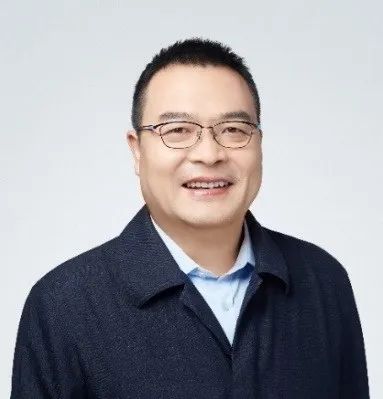
Wang Qiang, member of the Academic Committee of South China University of Technology, Vice Dean and Second-level Professor of the School of Medicine of South China University of Technology, winner of the National Outstanding Young Science Foundation, and Chief Scientist of the National Key R&D Program. He obtained his doctorate degree from Shandong University in 2004, worked in postdoctoral research in the Department of Biology at Tsinghua University from 2004 to 2008, served as an associate researcher at the Institute of Zoology of the Chinese Academy of Sciences in 2008, served as a researcher from 2013 to 2022, served as a deputy director of the State Key Laboratory of Membrane Biology, and served as a second-level professor at the School of Medicine of South China University of Technology in 2022, and was director of the Innovation Center for Basic Research on Development and Diseases of Medicine of the Ministry of Education. It is mainly engaged in the study of the molecular mechanism of embryo morphology, and deeply explores how embryos develop from a uniform morphological blastomere into individuals with obvious asymmetric characteristics such as head and tail, dorsal and ventral, and left and right. Published many research papers in mainstream international journals such as Developmental Cell, Nature Cardiovascular Research, Nature Communications, Science Advanceds, Blood, PLoS Biology, Development, etc. In 2012, he won the second prize of the Ministry of Education's Natural Science Award, in 2013, he received the National Outstanding Youth Science Foundation, in 2017, he received the outstanding achievements of Beijing's "12th Five-Year Plan" period, in 2020, he received the National Outstanding Youth Science Foundation, and he won the 2020 Outstanding Science and Technology Achievement Award (Collective Award). He serves as deputy editor-in-chief of the Chinese Journal of Experimental Zoology, editorial board member of Marine Life Science & Technology, executive director of the Chinese Cell Biology Society, president of the Developmental Biology Branch of the Chinese Cell Biology Society, and executive director of the Zebrafish Branch of the Chinese Zoology Society.
Lecture Topic 5: Pharmacologically targeting cancer stem cells
Introduction to the speaker
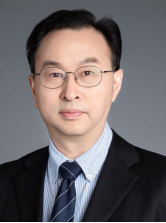
Pan Jingxuan, professor at Sun Yat-sen University, winner of the National Outstanding Youth Fund, selected as the "Yangtze River Scholar" Award Program of the Ministry of Education, chief scientist of the National Key R&D Project, also serves as the candidate of the Oncology Pharmacology Professional Committee of the Chinese Pharmacology Society, deputy chairman of the Tumor Gene Diagnosis Professional Committee of the Chinese Anti-Cancer Association, vice president of the Geriatrics Branch of the Chinese Society of Gerontology and Geriatrics, chairman of the Tumor Basics and Translational Research Committee of the Chinese Society of Gerontology and Geriatrics, chairman of the Tumor Pharmacology Professional Committee of the Guangdong Pharmacology Society, and chairman of the Tumor Professional Committee of the Guangdong Pathophysiology Society. He worked at the MD Anderson Cancer Center of the University of Texas in the United States for 8 years (1998-2006). In 2006, Sun Yat-sen University's "Hundred Talents Program" was introduced to China as a professor and doctoral supervisor of Sun Yat-sen Medical College. In 2010, he was selected as a winner of the National Outstanding Youth Fund. He is mainly engaged in oncology pharmacology research, and his research interests focus on the regulation mechanism of tumor targeted drug resistance and the stemness of tumor stem cells and its drug intervention. He discovered new drug-producible targets for tumor stem cells such as PRMT7, EZH2, and NAE1. He discovered a series of leading compounds that overcome imatinib resistance. He published 92 SCI papers in professional journals such as Cell Metabolism, Science Translational Medicine (selected in the top ten research progress of Chinese hematology in 2021), J Clin Invest, Signal Transduct Target Ther, Adv Sci, Cancer Res and Clin Cancer Res, and presided over a number of national projects including key projects of the National Natural Science Foundation of China and key research and development projects (chief scientists). He serves as deputy editor-in-chief of Molecular Cancer (IF 27).
Lecture topic 6: Fat microenvironment and anti-tumor immunity
Introduction to the speaker
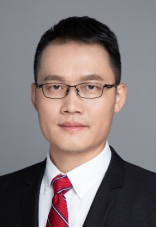
Ju Huaiqiang, the National Key Laboratory of Diagnosis and Treatment of Malignant Tumors of Sun Yat-sen University and the National Key Laboratory for the Diagnosis and Treatment of Malignant Tumors in South China, has won the National Excellent Youth (2020), Guangdong Outstanding Youth (2018), Guangdong Youth Pearl River Scholars (2018), and also serves as the candidate chairman of the Tumor Metabolism Committee of the Guangdong Anti-Cancer Association. In the past five years, he has been mainly committed to the study of fat microenvironment and anti-tumor immunity, and has presided over the sub-topics of the National Key R&D Program, the National Natural Tumor Microenvironment Special Project, and the Guangdong Provincial Natural Excellence Youth Team. As a corresponding author (including co-) he has published more than 20 SCI papers in authoritative journals such as Mol Cell (2), Gut (2), Nat Commun (4), Cancer Res, STTT (3), and Trends Phamocol Science (2). As the first inventor, he won 5 invention patents, won the China Tumor Young Scientist Award (2020), and won 1 second prize in the National Science and Technology Progress Award. A total of 7 academic achievements are ESI highly cited papers and are included in the Elsevier 2024 "Chinese Highly Cited Scholars" list.
- About Us
-
Research Platform
- Major Disease Sample Database
- Innovative Drug Verification And Transformation Platform
- Experimental Animal Center
- Life And Health Future Laboratory
- Biomedical Imaging Platform
- Cell Multi-Omics Platform
- Pathology Technology Platform
- Bioinformatics Research And Application Center
- Jinfeng Pathology Precision Diagnosis Center
- Research Team
- Information Center
- Join Us


 渝公网安备50009802002274
渝公网安备50009802002274